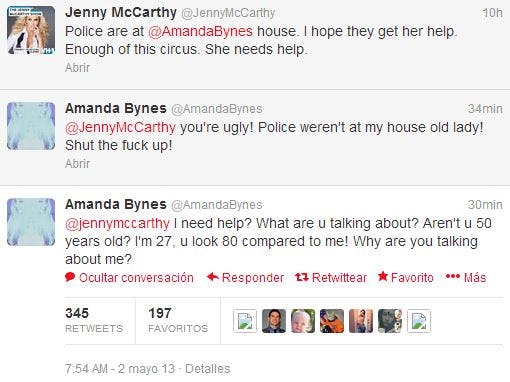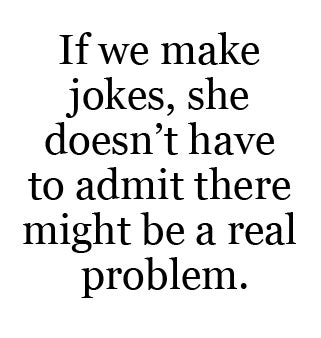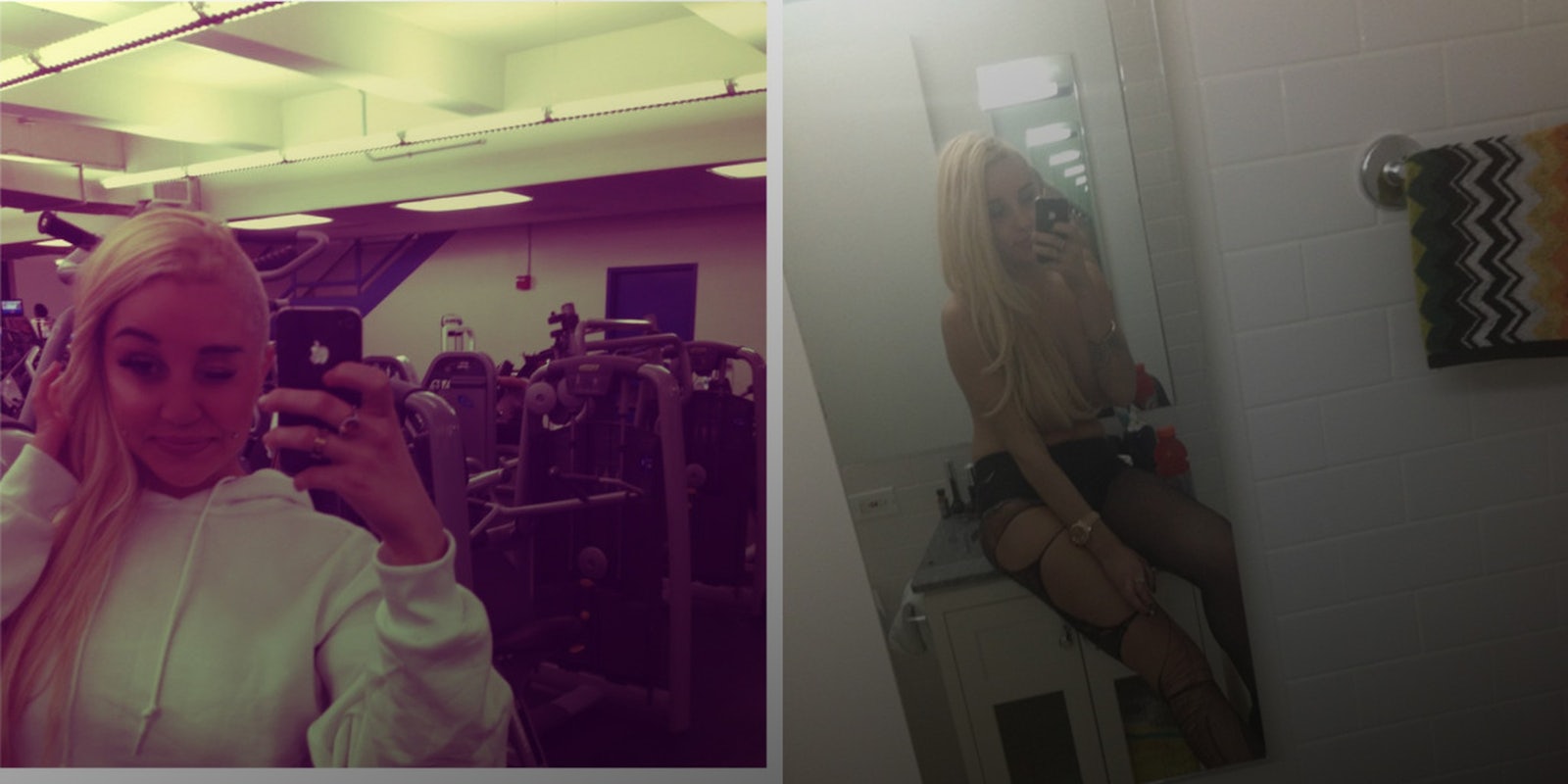Three weeks ago, I tattooed my hand. It’s just a little one, a heart on my finger, but my friend tweeted a photo of it joking that I was “going through a freefall” and hashtagging it “#AmandaBynes.” I was tickled.
Everyone loves a good celebrity trainwreck. It gives us a jester to poke fun at. It makes us feel better about not being rich and famous. It gives Jay Leno something to joke about. It takes our minds off our impending mortality. It’s basically a win-win for everyone—except, of course, the wreck.
Because unfortunately, when a celeb is going off the rails, drugs and alcohol are usually not far away. In our rush to acquire Twitter followers or pop out some funny content, we forget that when we make fun of people like Charlie Sheen or Lindsay Lohan, we’re laughing at addicts.
And so intertwines the recent tale of former Nickelodeon child star Amanda Bynes, who yesterday stirred up controversy by tweeting nearly nude bathroom selfies. The photoshoot prompted the Internet to trash her, judge her body, judge her choices, and call her all sorts of “hilarious” names and make all sort of “hilarious” jokes. It prompted former Kardashian publicist Jonathan Jaxson (really?) to tweet with faux-concern: “I just spoke to @AmandaBynes and she is soooo messed up on drugs and please @NY_POLICE find her and help her! I don’t know her address! @TMZ.”
Actress Jenny McCarthy, for some unknown reason, also chimed in worrying about Bynes’s health.

Screenshot via Oh No They Didn’t
Supposedly the cops dropped in on her. Bynes denies that. She tweeted back at McCarthy today, lashing out at her for getting involved and calling her “ugly,” a favorite insult of hers. This afternoon, she apologized after McCarthy apologized to her. (Erratic behavior toward someone who “cares”? Classic symptom of addiction.)
My father is a recovering alcoholic and I’ve attended my fair share of AA and Al-Anon meetings. And look, I get it. It’s easy to make fun of someone who has money and who clearly seems like she doesn’t want help. Addiction and mental health are especially not looked at as “serious” or “medical” (when they are both of those things) because both are unfairly seen as self-inflicted and because the person’s behavior becomes a spectacle. We can’t look away from Amanda Bynes right now. Whether she’s getting naked in a spin class or propositioning Drake, we can’t wait for what she does next because it’s so amusing. A celebrity addict, with billions of dollars and terrible grammar, isn’t going to garner much sympathy.

It’s not amusing, though. It’s sad. The only thing making fun of an addict does is enable his or her addiction. Bynes may be on drugs, but along with everything else, her addiction is attention. And now these sick stars have constant access to their fans and “enablers” via social media, which only exacerbates the cycle of addict-mocking.
In Bynes’s case, it’s also important not to speculate or to throw around the word “crazy.” In this recent In Touch interview, Bynes denies having a mental illness (perhaps she’s worried about the stigma surrounding the label). But the interview also says she stays up all night and tweets around the clock and her statements are all over the place. It’s easy to speculate about her condition, and Bynes wants us to: If we make jokes, she doesn’t have to admit there might be a real problem.
Is it performance art? Is it a shrewd media strategy? Were any of us talking about Amanda Bynes before she started acting out? If she’s not on drugs or mentally ill, it’s wildly irresponsible to throw those accusations around like any of us are psychiatrists. And making light of this is flat-out, old-school, AA- and NA-defined enabling.
One of the biggest problems an addict faces is being surrounded by enablers, people who feed into and those who defend the bad behavior. With someone like my dad, it’s really only family and friends, a small core group, that allowed him to carry on like he did for so long. With a celebrity? The enablers are in the millions. Everyone who tweets at a coked-out actress that she looks stunning or that she should ignore the haters, is telling them to continue treating themselves this way, to keep going down this path, and that what they’re doing is working.
But addiction and mental illness is only funny until it really, really isn’t. People were super-on-board with a good Amy Winehouse jab until she passed away from a drug overdose. Anna Nicole Smith was vapid-reality-TV gold until she died, leaving a young daughter behind. Brittany Murphy was mocked for being too thin by the tabloids and then she, too, died from drugs.
These are not dancing circus bears for our entertainment—these are struggling, sick human beings. When are we going to learn that derision and sneering laughter are not the ways to handle addiction, especially in the public eye?
Images via Amanda Bynes/Twitter


